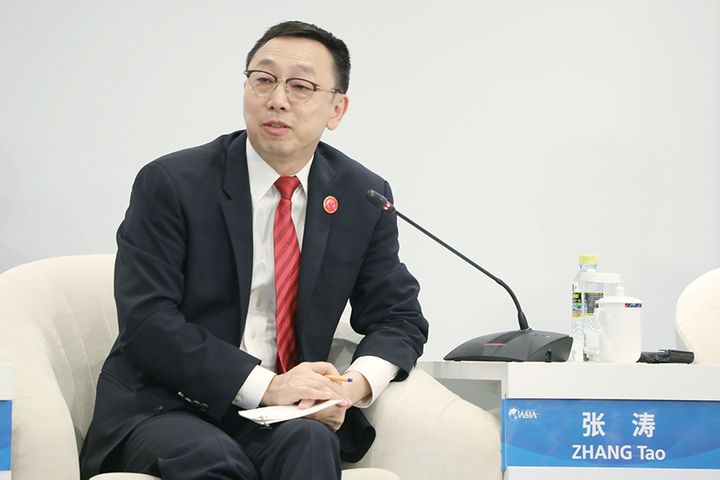 IMF Trims Global Outlook as Deputy Head Calls on Members to Seek Consensus
IMF Trims Global Outlook as Deputy Head Calls on Members to Seek Consensus(Yicai Global) Oct. 17 -- The International Monetary Fund has downgraded its global economic growth forecast as uncertainties from trade disputes and other geopolitical changes take their toll. The outlook is "precarious," the organization warns in its latest report.
The IMF expects the world economy to grow at 3 percent this year. This is a 0.2 percent drop from its previous forecast in July and the lowest level since the outbreak of the 2008 global financial crisis, the Washington-based agency said in its semi-annual World Economic Outlook report.
The main reasons for the weak pace of global economic activity are increasing trade barriers, growing trade and geopolitical uncertainties, macroeconomic pressures caused by special factors on several emerging markets, as well as structural factors in advanced economies such as slow productivity growth and aging populations, the report said.
"Members need to actively negotiate and strive to seek broad consensus, especially in reducing trade tensions, and step up efforts to ease tensions in the region so as not to further aggravate the world economy," Zhang Tao, the IMF's deputy managing director, said on Oct. 15.
Trade volume growth in the first half of 2019 was only 1 percent, the weakest level since 2012 and well below last year's 3.6 percent. It has also broken the pattern where global trade volume grows faster than gross domestic product, according to the report.
Eighty percent of countries, including major developed and developing ones, will experience economic decline this year, Zhang said. The uncertainty has affected business confidence, market decisions and consumption. Industrial chains have seen some changes and some investment decisions have been put off.
Extensive structural reforms are urgently needed to spike productivity and potential economic growth. However, because of global trade frictions, these structural reforms have been delayed, which will also affect the world economy's future performance to a certain extent, he said.
Member states should implement macroeconomic policies that are in line with their own realities, including adopting a supportive monetary policy appropriate to their conditions, resorting to more active fiscal policies and advancing structural reforms as soon as possible, Zhang added.